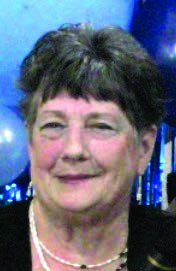OPINION
To heal the division we have in our environment, we need to become better communicators.
Communication is about listening as well as speaking, and frequently, the listening part should be the most important.
Communication is not just letting the other person know how you feel on a subject.
Effective communication begins by letting the other person know they are welcome to share a space with you.
That does not require a PhD in behavioral science.
Telling someone you're glad they moved to your town, joined your church or club, or volunteered to serve on a committee or board could open the door for meaningful dialogue.
Next step, invite them for a cup of coffee, tea, etc., letting them know you want to get to know them better.
Most people are afraid to make the first move.
You will have to take the initiative: Get to know others by asking questions, listening attentively, truly taking an interest in the other person, discovering what you have in common and embracing the things you don't.
You don't have to join them in skydiving, but you can enjoy their enthusiasm for it. Including them in your world could make all the difference.
Find a common denominator to build your relationship, but don't be afraid to get into some grittier conversations.
They don't have to be argumentative if you listen to the other persons point of view.
Staying silent on a subject can lead the other person to open up.
Every moment in your life has shaped you into what you are.
The other person was similarly shaped by their experiences.
You will never find anyone whose experience has been exactly the same, not even your siblings.
Listen and ask how they came to their conclusions or decisions.
Perhaps, you may find their experience has given them a better understanding of a viewpoint.
Don't be judgmental. If you don't understand their perspective, ask more questions, do some research on the subject, ask others how they feel and what their arguments are, pro or con.
Become informed, stay tolerant and try not to be the one to draw the line in the sand.
Be patient! Did you know that one in five people suffer from a learning disability?
Written words can get in their way, causing the bulk of their learning experiences to come from conversations, television, radio, sermons and lectures.
The spoken word. Their opinions are based on what they have heard to a large degree.
Imagine that you have never had the capability of learning from a novel, schoolbook, magazine or newspaper article. Look at things from another's perspective. Yes, there are many subjects that each of us must take a stand on. Belligerent and disrespectful attitudes, even on those subjects, will never convince the other person.
Respecting others and allowing them the free will of thought will advance your argument much further.
Combative, argumentative dialogue never works.
The free flow of ideas can provide an avenue, like traffi c flowing on a two-way street.
There are intersections where you may make a Uturn by changing your mind or convincing the other person to your thinking.
I have changed my mind on topics, but it has always been through reasonable, respectful, informative dialogue.
Healing the divide, whether in a city, family, friends, coworkers or others, must start with each of us willing to take the first step into an atmosphere of mutual respect.
Unfortunately, you may be the only one who practices that at the beginning.
The other person may never be convinced to show the same respect, because some people's personalities are just combative.
Dispositions are born from many factors—genetics, environment, economic status, religion, ethnicity, race, discrimination, sexual orientation and gender.
Many of us would be surprised at how others might describe us.
I also believe that social media influences dispositions and behavior.
People tend to seek a likeminded group to provide a sense of value and belonging.
Think of the kid that sits alone in the cafeteria, wanting to be part of a group.
Most of us have become too comfortable in our 'group' and frequently will not make the move to welcome others into our realm or venture into other realms.
Trying to erase the line in the sand is not an easy task; it will require you to step out of your comfort zone.
You will have to look at your own convictions and personality to decide how you can accomplish that task.
Also, be aware that you do not need to accept bad behavior.
Excuse yourself by saying, “I would love to continue, but you also need to have respect toward me.”
Remember to love them despite your differences.
You may not win the argument, but you will be the winner in your life.
Coffee, anyone?
Cindy “Mama C” Faris is a Pilot Point resident and she is offering life advice for any who want it. She can be reached at [email protected].

















